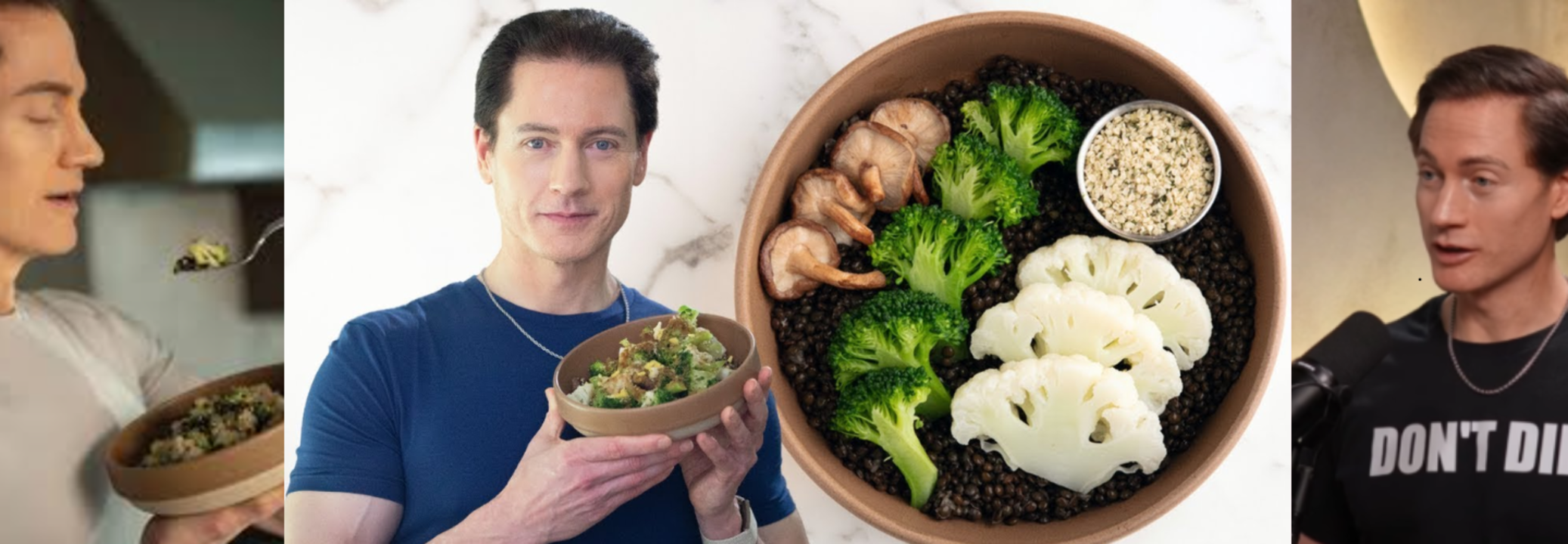The Longevity Diet: Bryan Johnson Eats 3 Meals In 6 Hours—With Extra Virgin Olive Oil

Credits: YouTube and Instagram
SummaryBryan Johnson ditched rapamycin over side effects, now focuses on a 6-hour, 3-meal superfood diet rich in olive oil, supplements, and plant protein to pursue longevity.
End of Article
